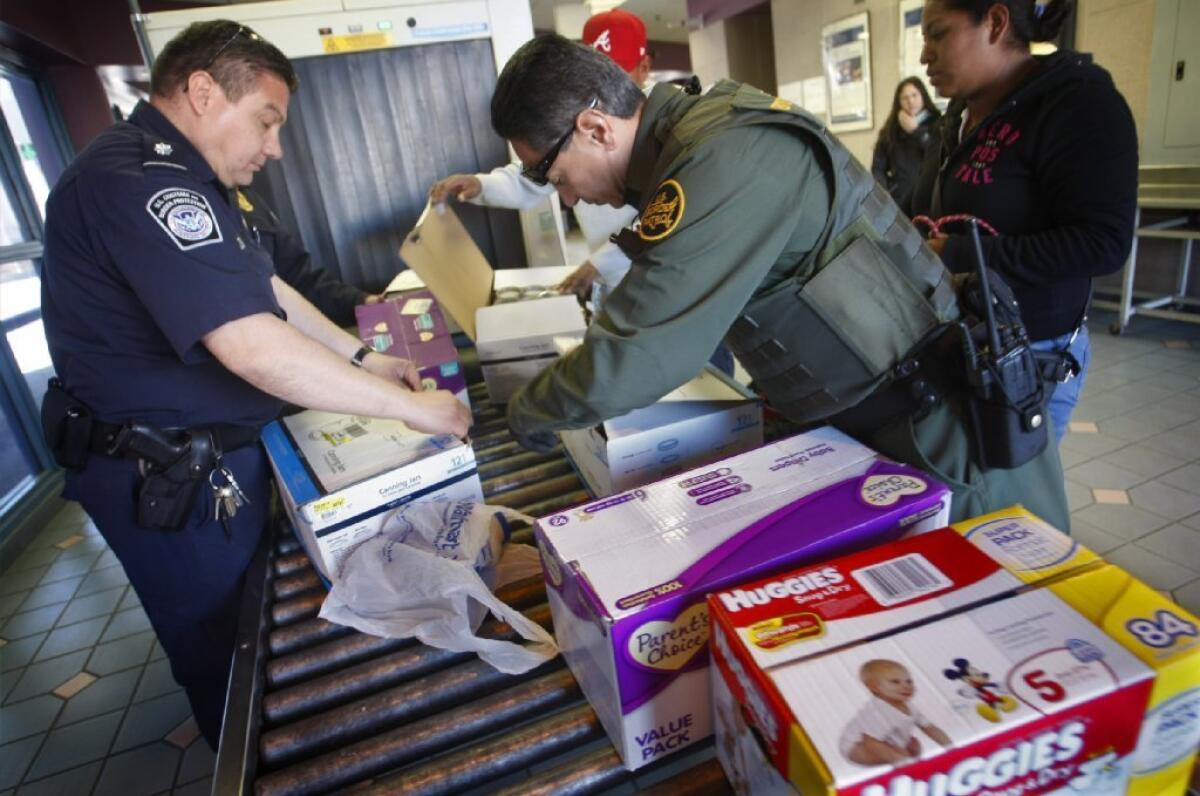Hands off our laptops

- Share via
As President Obama ponders a task force’s recommendations for reining in electronic surveillance by the National Security Agency, a federal judge in New York has allowed another government agency to invade the privacy of Americans. Judge Edward R. Korman ruled that U.S. Customs and Border Protection agents may confiscate and examine the contents of laptop computers of Americans returning to the country even if they lack reasonable suspicion that the devices contain evidence of criminal activity.
Korman rejected a challenge to the Department of Homeland Security’s search policy brought by Pascal Abidor, a U.S.-French dual citizen and doctoral student at McGill University in Montreal. Abidor was returning to the U.S. from Canada in 2010 when a customs agent inspected his laptop and found images of rallies by the Islamic groups Hamas and Hezbollah. The laptop was returned to Abidor 11 days later after agents viewed several files, including, he says, the transcript of a chat with his girlfriend.
In his opinion, Korman unconvincingly suggested that border agents might have been justified in searching Abidor’s laptop because it contained pictures related to Hamas, a Palestinian group, when Abidor’s academic specialty was Lebanon. But his broader legal conclusion was that agents can inspect laptops even in the absence of any reasonable suspicion. Korman approvingly cited a 1977 decision in which the Supreme Court said that border searches were reasonable because of the “single fact that the person or item in question had entered into our country from outside.”
That rule might have made more sense when objects carried by travelers were limited to luggage and briefcases, which might contain contraband or weapons. But, as the U.S. 9th Circuit Court of Appeals noted in a 2012 ruling: “Laptop computers, iPads and the like … contain the most intimate details of our lives: financial records, confidential business documents, medical records and private emails. This type of material implicates the 4th Amendment’s specific guarantee of the people’s right to be secure in their ‘papers.’”
In that case, the 9th Circuit nevertheless upheld a sophisticated forensic analysis of the laptop of a man returning from Mexico that turned up images of child pornography. But the court said there was “reasonable suspicion” to justify the search because the man had been listed as a sex offender on a government watch list.
If and when this issue reaches the Supreme Court, the justices should recognize, as the 9th Circuit did, that advances in technology require special protection for laptops and other devices that store a wealth of personal information. The best way to vindicate that principle is to require government agents to have a reasonable suspicion of wrongdoing before they conduct a search.
More to Read
A cure for the common opinion
Get thought-provoking perspectives with our weekly newsletter.
You may occasionally receive promotional content from the Los Angeles Times.










